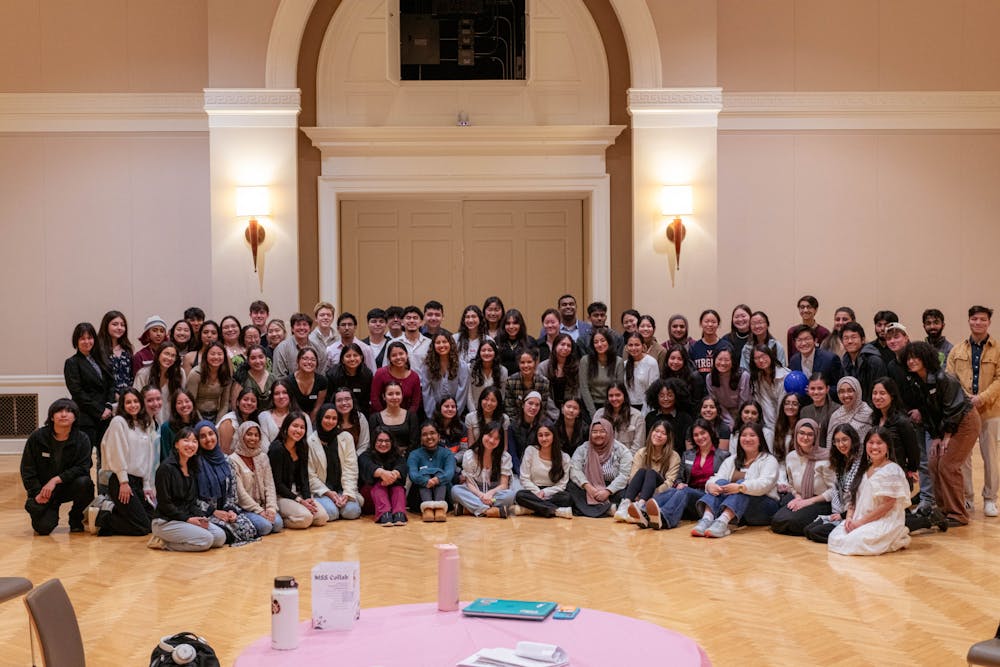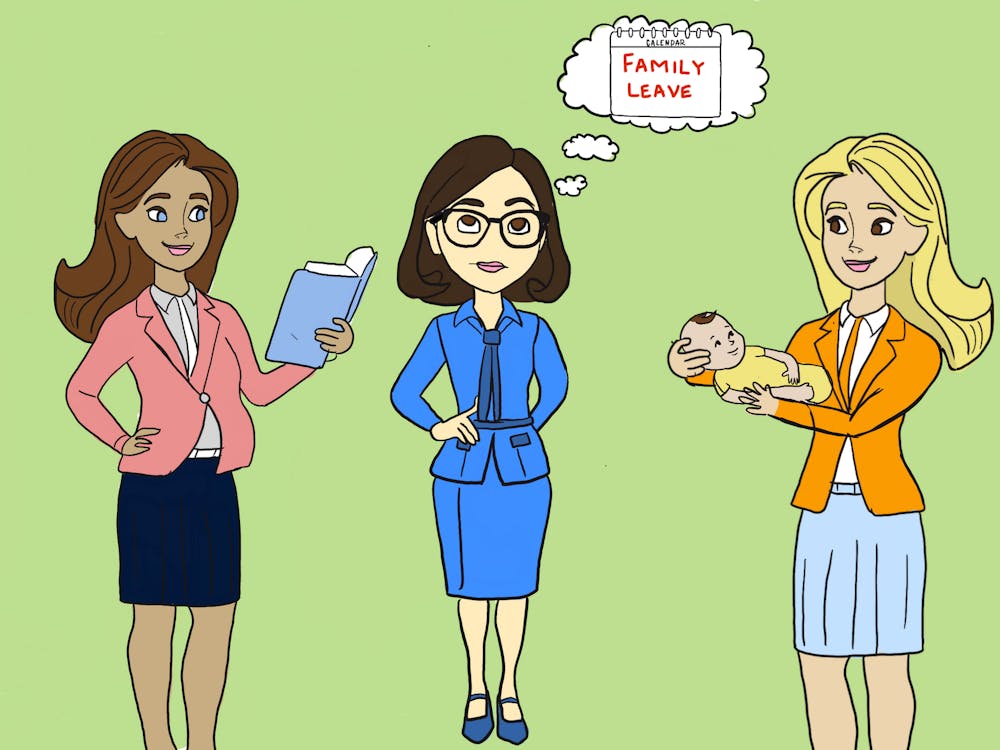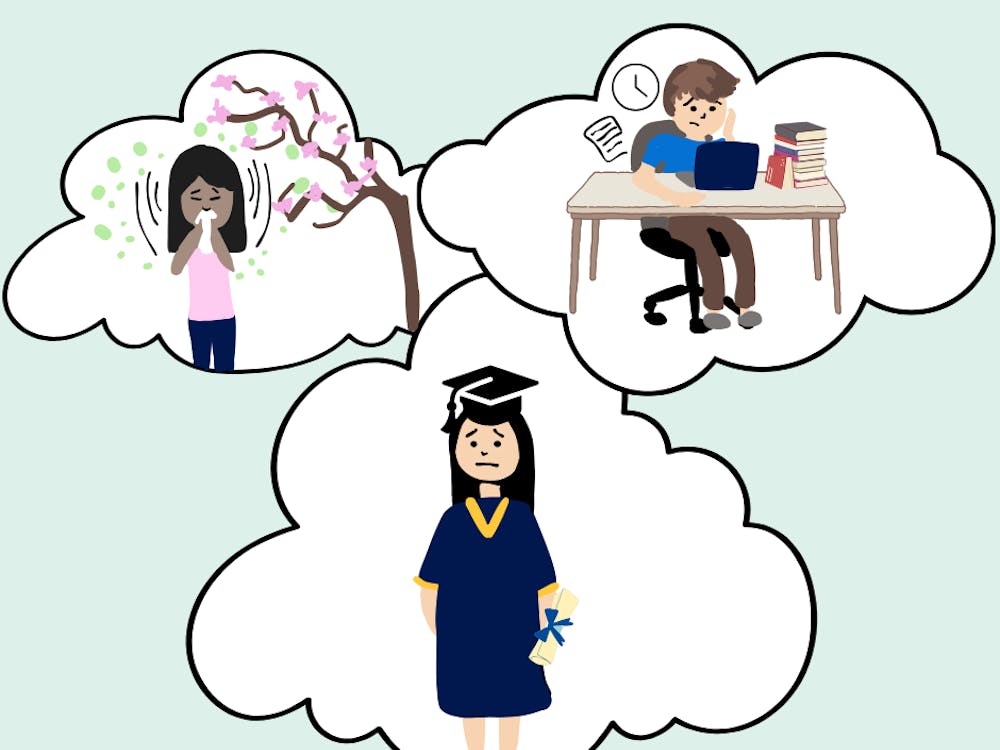Multicultural Student Services hosted its third MSS Annual Collaborative Session Feb. 28, providing a space for students to practice leadership skills, discuss the history of University events and think critically about issues that affect marginalized communities in Charlottesville. Drawing on their cultural and religious backgrounds, dozens of developing leaders identified problems within the University community and discussed solutions to foster multicultural inclusivity.
Three MSS leadership development cohorts took part in the event — the Asian Pacific American Leadership Training Institute, the Muslim Institute for Leadership & Empowerment and the Latinx Leadership Institute. Each of these three cohorts host weekly, student-facilitated meetings throughout the spring semester where students navigate their identities and address University issues. While the cohorts usually operate independently, attendees mingled at the collaboration event this week, chatting with peers from other cohorts as they enjoyed dinner from Chimm.
The event prepared cohort members to be culturally responsive leaders. Farah Eljazzar, MILE member and first-year College student, said that understanding her peers’ identities was integral to building her own leadership skills.
“While it's great to recognize your own intersectionality … it's something else to be able to collaborate on those various intersectionalities,” Eljazzar said. “[We] build a greater consensus on what it means to be a leader, and how we can work together as marginalized communities to lift each other up, especially in times of crisis.”
The event consisted of two activities meant to illuminate the diversity and history of the University. For the first activity, students constructed a timeline of University events, arranging paper strips in chronological order. The activity introduced them to landmark moments in the University’s history, such as the graduation of the school’s first international student, the openings of various student centers and the founding of the three cohorts in attendance.
Student organizers of the event then took the podium to reflect on the timeline, emphasizing how the communal activity grounded students in the University’s past. For Aahna Patel, APALTI member and first-year College student, working in a diverse group inspired her to think about the University beyond surface-level conversations.
“Getting to collaborate with each other — it just brings a lot more like heads together, and we get so many more ideas,” Patel said.
The second activity allowed students to pool together their problem-solving abilities. In small groups, students created a solution for a given case study and presented their proposal to a larger group in a two-minute elevator pitch. Case study topics included the inaccessibility of meals during Ramadan, inadequate financial aid for undocumented students and a lack of courses that capture the diversity of Asian culture. While some case study topics were unfamiliar to students, Patel said all participants seemed eager to understand the various cultural issues affecting their peers.
“My [case study] was focused on Asians, but everyone — even though they weren't all in APALTI — helped with that issue, cared about the issue and came together to fix the issue,” Patel said. “I think that just shows we can all really help each other out.”
Reflecting on the night’s activities, students emphasized the utility of taking advantage of the people and places the University has made available for multicultural students. For Eljazzar, the event taught her how to use these resources to promote inclusivity, even in small increments.
“I feel like I gained a lot of knowledge about our institution [in] general and our history, especially regarding marginalized communities,” Eljazzar said. “I realized our history is very flawed in the sense that we have only taken small steps towards inclusion and empowering marginalized voices very, very recently.”
Whether or not attendees had taken cultural classes before, the event encouraged them to think about the role of multiculturalism in education. For Patel, the event reinforced the importance of learning diverse topics in college.
“That’s the whole purpose of studying religion, like Asian Studies or American Studies,” Patel said. “The reason people study them is to learn more about other backgrounds too … Getting groups together like this actually allows for that.”
Beyond the event, cohort members are working on projects this semester to address issues that affect their communities. Their projects range from creating inclusive club fairs to supporting Afghani refugees in Charlottesville. Eljazzar touched on the importance of exploring the intersection between her leadership and cultural beliefs.
“Being able to use my Muslim identity, as well as my privilege of having an education, to help other communities that have a similar identity is really important,” Eljazzar said.
Student leaders in the MSS cohorts represent a sliver of the minority students at the University, but the work they do to understand each other’s identities signifies progress towards a more inclusive University community. Vincent Martinez, program engagement director of LLI and second-year College student, said that bringing together diverse groups like the MSS cohorts ensures that minority students remain integrated in a primarily white institution.
“Coming to a [primarily white institution], you’re going to group with people that are similar to you,” Martinez said. “But it’s also important to remember that we’re all minorities in a PWI and we need to stick together because there’s power in numbers.”







